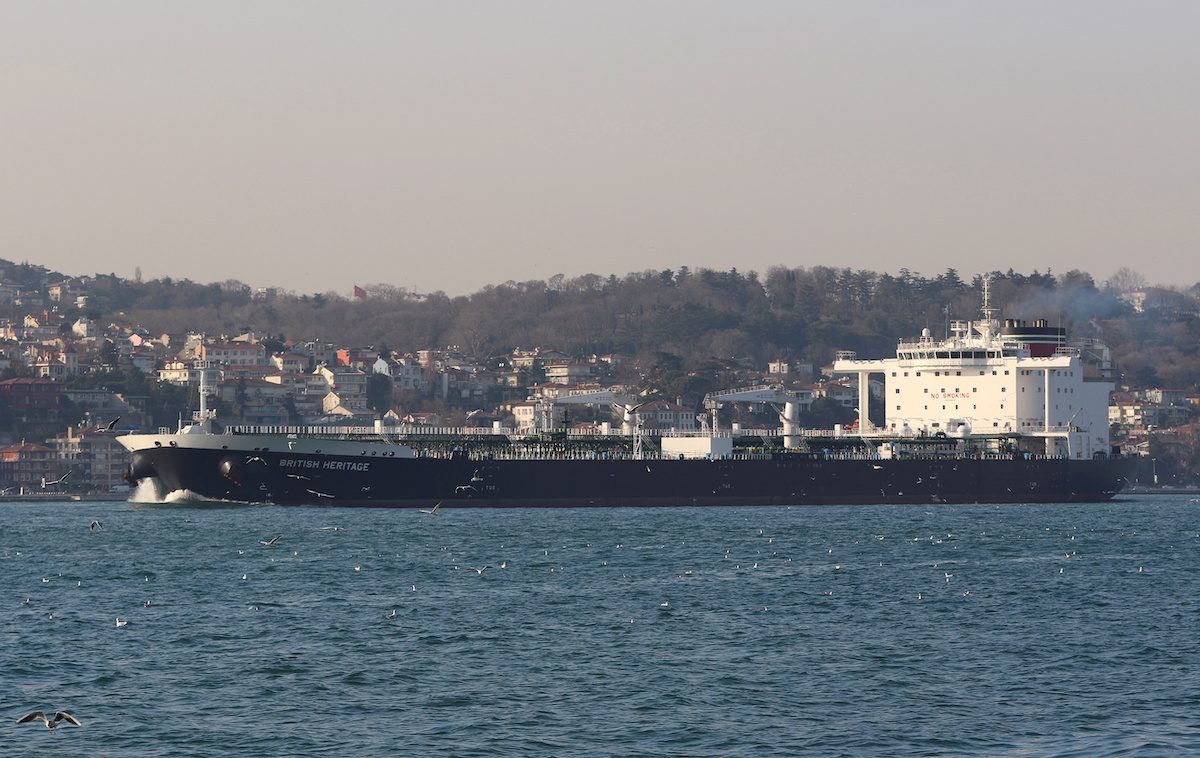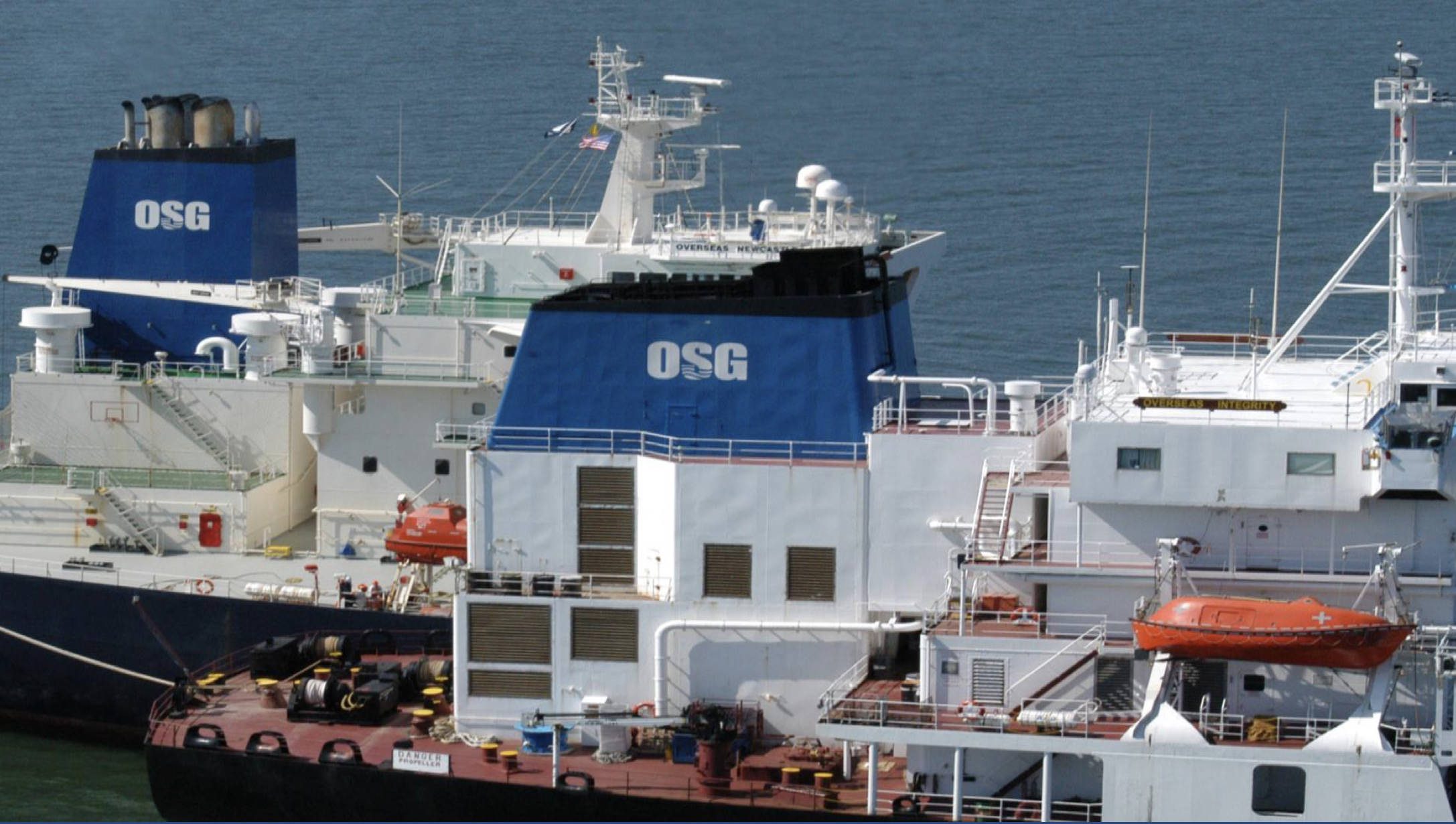A tanker sails in the Bosphorus, on its way to the Black Sea, in Istanbul, Turkey, March 1, 2019. Picture taken March 1, 2019. REUTERS/Cengiz Tokgoz
By Sinan Ulgen (Bloomberg Opinion) –Could a new infrastructure project shape the future of Turkish politics? That is one of the questions surrounding Canal Istanbul, a plan to link the Sea of Marmara and the Black Sea, bypassing the Straits of Bosphorus.
The $15 billion project, championed by President Recep Tayyip Erdogan, aims to create an alternative route for shipping, to protect Istanbul from environmental disasters that could result from accidents involving dangerous cargoes. But if completed, it would bring other political and economic benefits to the government in Ankara.
The Turkish electorate has historically been enthusiastic about large-scale infrastructure projects, seeing them as signs of development and international prestige. Under Erdogan, successive governments have invested in such big-ticket projects ranging from the giant new Istanbul airport to the Marmaray tube crossing under the Bosphorus. These projects have been touted prominently in the election campaigns of his AK Party.
This follows a tradition dating back to 1950s, when governments used megaprojects to underline their pro-growth agenda. Süleyman Demirel a former president and seven-time prime minister, was known as the “king of dams” for his track record of developing Turkey’s hydro-energy infrastructure.
Like most megaprojects, Canal Istanbul promises a substantial economic impact. Its champions say the associated construction activity alone would provide a welcome boost to Turkey’s ailing economy, and help mitigate unemployment, which has reached 14%. The project is also expected to bring in fresh foreign direct investment, especially from Gulf Arab nations.
In recent years, Turkey has had difficulty attracting FDI: the figure for the first 10 months of 2019 was $4.8 billion, hardly commensurate with an $800 billion economy. But FDI in real-estate and construction projects reached $640 million in the same period, amounting to 13.6% of total the total—or nearly four times the longterm share of 3.5%.
The economic rents created by new zoning laws and licensing of real-estate developments around the Canal Istanbul area would yield still more economic benefits.
But first, Canal Istanbul must overcome a set of domestic and international obstacles. Unlike previous megaprojects, it doesn’t have the backing of the majority of Turks. Many residents of Istanbul worry about its environmental impact, especially its potential to irreversibly damage the city’s fresh-water supply.
Leading the opposition to the project is Ekrem Imamoglu, the newly elected mayor of Istanbul, who has vowed to block it by any legal means possible. Imamoglu is widely regarded as the likeliest challenger to Erdogan in the near presidential election, due in 2023, which puts the canal at the center of the country’s fiercest political contest.
There’s also opposition to the canal from abroad. The project raises uncertainties about the future of the Montreux Convention of 1936, which established the international regime for the Turkish straits—the Bosphorus and the Dardanelles. Cahit Turhan, Erdogan’s transport minister claimed last week that the canal would generate annual revenues from passing ships to the tune of $1 billion, reaching $5 billion by 2050. These expected revenues are to underpin the project’s build-own-operate investment model.
But the Montreux Convention acknowledges the right of free passage through the straits: Turkey cannot charge a transit fee from merchant vessels using the Bosphorus. The new canal can only generate revenues if shipping companies use it—and why would they, while the Bosphorus passage remains free?
Turkey may want to impose a fee on the older waterway, necessitating an amendment of the convention. That, in turn, would require the approval of at least seven of the 10 states that are party to the convention: Turkey, Russia, Bulgaria, Romania, the U.S., Britain, Australia, Greece, Japan and the now defunct Yugoslavia. It is hard to imagine why they would agree to such a change.
If the aim is to introduce these changes, the convention requires Turkey must notify the signatory parties at least three months before 2021.
Triggering negotiations on the provisions of the convention could also lead to disagreements over its military clauses, which give Turkey a strong mandate to control the passage of warships to the Black Sea. Erdogan has indicated that the new canal would be open to naval vessels, which might undermine the convention’s restrictions on the Bosphorus.
As the project’s champion, Erdogan has invested a great deal of personal prestige in its success. But the odds against him are greater than with previous megaprojects. Canal Istanbul faces a difficult passage.
© 2019 Bloomberg L.P
Unlock Exclusive Insights Today!
Join the gCaptain Club for curated content, insider opinions, and vibrant community discussions.

 Join The Club
Join The Club







![A screengrab of a map showing an earthquake Mindanao, Philippines on Dec 2, 2023. (Image: US Geological Survey [USGS])](https://gcaptain.com/wp-content/uploads/2023/12/Screenshot-2023-12-02-at-10.45.17-AM-copy.png.webp)





